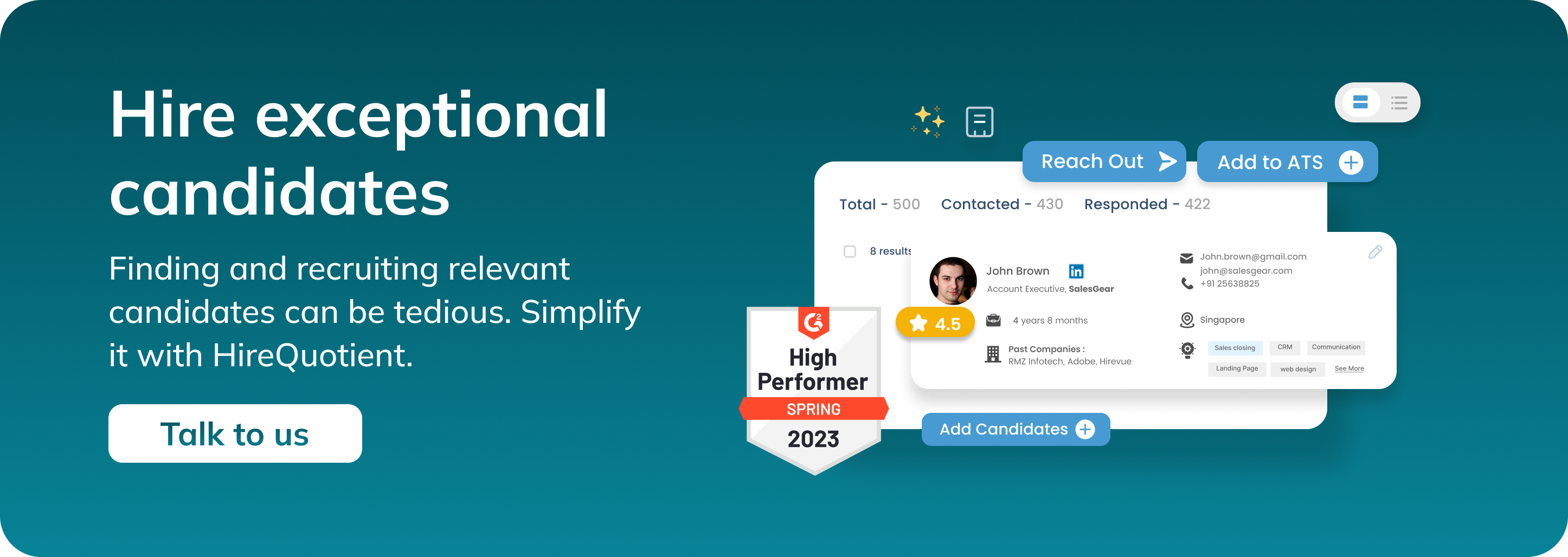Understanding Exempt Employees in Texas: A Guide for Recruiters and Hiring Managers
Published on April 9th, 2024
Are you a recruiter or a hiring manager in Texas?
If yes, you should know that certain employees in the state are exempt from overtime and minimum wage laws under the Fair Labor Standards Act (FLSA). These employees are called "exempt employees." As a recruiter or a hiring manager, you must understand the criteria for exempt employees in Texas to stay compliant with federal and state labor laws.
In this blog post, we'll break down the details of exempt employees in Texas and help you understand who qualifies as one.
Who are Exempt Employees?
Exempt employees are those employees who are "exempt" from certain labor regulations of the FLSA. These regulations include rules about overtime pay and minimum wage. They are classified as exempt based on their job duties and salary, not their job titles.
To know more, read: What Does Exempt Employee Mean?
In Texas, there are three major categories of exempt employees
The first category is the executive exemption. This applies to employees who manage people or tasks and have the authority to hire and fire employees. To qualify as an exempt executive, an employee must be paid at least $455 per week and must spend more than 50% of their working time on executive duties.
The second category is the administrative exemption. This applies to employees who perform non-manual work related to management or general business operations and require the exercise of discretion and independent judgment. To qualify as an exempt administrative employee, they need to be paid at least $455 weekly or a salary of $23,660 annually.
The third category is the professional exemption. This applies to employees who perform work requiring advanced knowledge in a field of science or learning that requires extended learning and discretion. These workers must be paid at least $455 per week or a salary of $23,660 annually.
It's important to remember that each category has specific requirements that must be met to classify an employee as exempt. Additionally, suppose an employee is not classified as exempt under FLSA regulations.
In that case, they are considered non-exempt and must be paid overtime if they work more than 40 hours a week.
How Many Hours Can A Salaried Exempt Employee Be Forced To Work In Texas?
One of the advantages of being a salaried exempt employee is that there are no restrictions on the number of hours they can work per day or week.
According to the Fair Labor Standards Act (FLSA), salaried exempt employees are not eligible for overtime pay, irrespective of the number of hours they work. This means that employers can require their salaried exempt employees to work as many hours as needed to get the job done, with no requirement to pay them any extra compensation.
However, it is important to note that there is a limit to the demands that an employer can place on a salaried exempt employee. Under the Occupational Safety and Health Administration (OSHA) standards, employers have a general duty to provide their employees with a safe and healthy work environment.
It includes addressing potential hazards resulting from excessive working hours. Therefore, an employer can be held liable if a salaried exempt employee suffers an injury or illness as a result of overwork. As a result, it's important to ensure that salaried exempt employees are not being forced to work dangerous hours that could undermine their health and well-being.
Talent Sourcing with EasySource
EasySource revolutionizes the recruitment process for exempt employees by offering the world's first fully automated talent-sourcing tool. This innovative solution simplifies the search for skilled candidates by creating a robust talent pipeline with just a few clicks. Leveraging advanced AI-based filters such as location, skills, education, experience, and US work authorization, EasySource streamlines the process of finding relevant candidates.
Additionally, EasySource is equipped with cutting-edge technologies like ChatGPT and Generative AI, empowering recruiters to send highly personalized messages to potential candidates across various platforms, all with the convenience of automation. By harnessing the power of EasySource, recruiters can amplify their LinkedIn search capabilities and efficiently discover and engage with exceptional exempt candidates, eliminating the need to sift through countless resumes in search of top-tier talent.
Conclusion
To sum up, understanding the rules surrounding exempt employees in Texas is of utmost importance for recruiters and hiring managers alike. This knowledge saves them from getting into any legal trouble concerning federal and state labor laws. Simply basing an employee's classification by their title won't suffice, and it is important to take into account the salary they get and the duties they perform.
Three major categories of exempt employees in Texas are executives, administrators, and professionals. Within each category, there are specific requirements that must be met. By complying with these requirements and treating employees equitably, you can ensure that your business can grow sustainably without running legal risks.
Authors

Soujanya Varada
As a technical content writer and social media strategist, Soujanya develops and manages strategies at HireQuotient. With strong technical background and years of experience in content management, she looks for opportunities to flourish in the digital space. Soujanya is also a dance fanatic and believes in spreading light!
Hire the best without stress
Ask us how
Never Miss The Updates
We cover all recruitment, talent analytics, L&D, DEI, pre-employment, candidate screening, and hiring tools. Join our force & subscribe now!
Stay On Top Of Everything In HR



